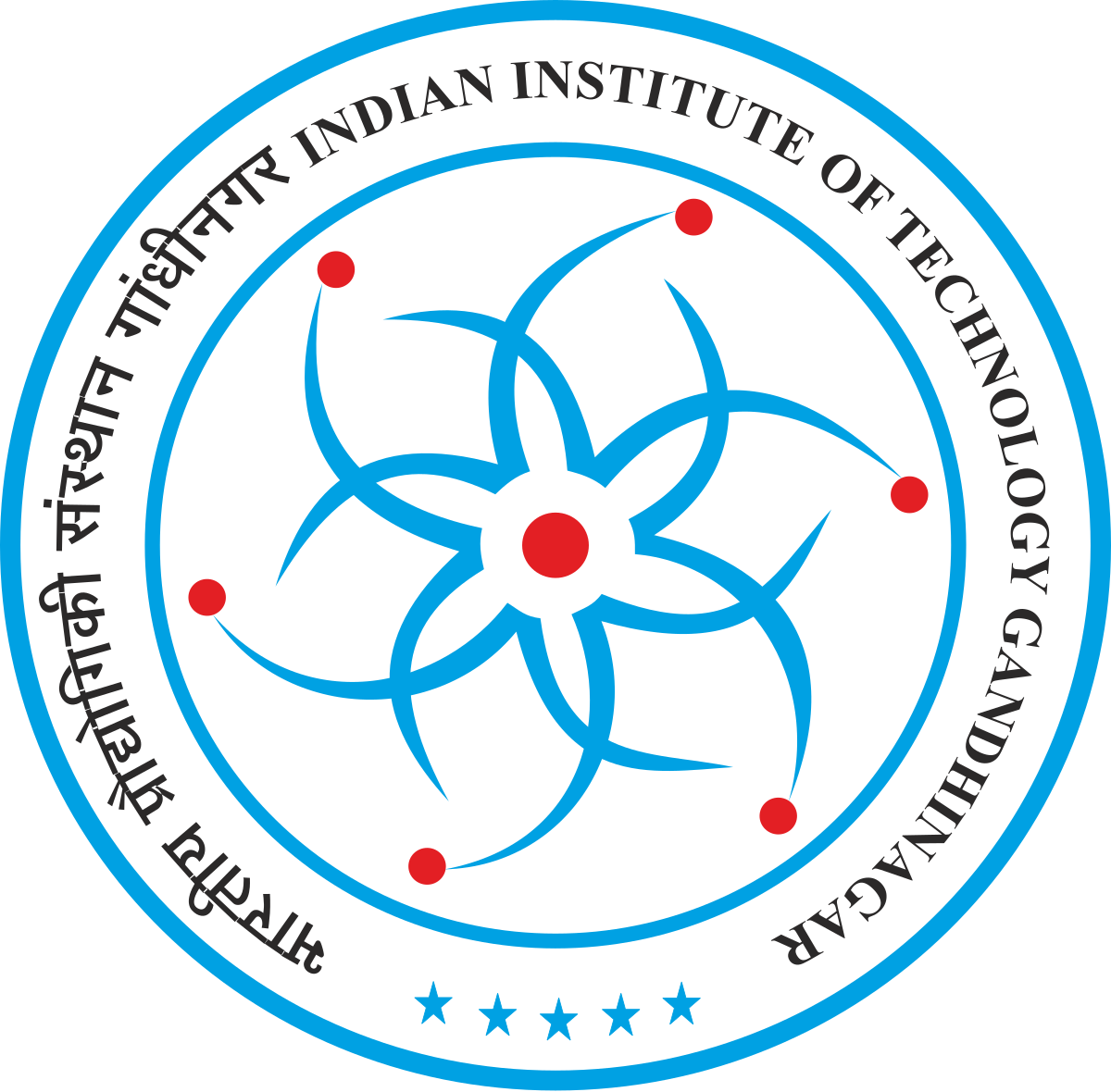Connecting the Unconnected or under-connected (CTU) is the holy grail of transforming the lives of over 3 billion people around the globe, with over 500 million in India alone, with wireless Internet who are yet to experience its value in multiple ways. If this could be accomplished, its impact on the society would be enormous. This workshop would focus highlight the need to consider the CTU requirements in 5G and B5G networks in the standardization process, in the development of the use cases, and affordable solutions. In its Vision 2030 SDG (Sustainability Development Goals) the United Nations has proclaimed access to Internet as basic human right and has said that these goals cannot be achieved without affordable access to Internet by everyone on this planet. While there are numerous projects and initiatives ongoing around the world, but these are fragmented and lack the critical mass and coordination to be able to impact the future standards, product development, and cost of deployment otherwise achievable by volume. The workshop would discuss the challenges, solutions, and potential for collaboration opportunities to influence the network service providers, manufacturers and the governments around the world.
While technologies are available today, they need to be customized and optimized at the systems level to bring down the cost of network in order to be affordable. In addition, the content needs to be relevant and in local languages to be of useful, not to mention the need to offer innovative human-computer interaction (HCI) solutions (that are not text based) so that people who are not literate or digitally savvy can easily use the devices and consume services. Another important requirement is that of flexible spectrum allocation regime at the lower range of the spectrum to increase reach and coverage. Use of renewable energy sources will enable deployment in remote areas where there is lack of power grid or it is intermittent. In short, this workshop will highlight a number of technology gaps to should be addressed in 5G and B5G networks, such that access is affordable and content and services are actually consumed by the target set of users. Technology aside, need to develop innovative business models is a must to be commercially sustainable in the long-term. A number of such models, especially designed for the rural population, will be discussed, such as Village Level Entrepreneur (VLE), Freemium (Free + Premium), revenue sharing among the cascade of service providers, subsidized billing by USOF (Universal Service Obligation Funds). Finally, the workshop aims to summarize the state-of-the-art from today to 3 years, 5 years and 10 years.
The proposed workshop is a half-day workshop that will take place during IEEE ANTS 2020. The workshop aims to bring researchers/experts around the world together to explore and discuss the state-of-the-art research and local initiatives in the areas mentioned above. The workshop will include invited speakers and those selected from the open call to join as speakers. Topics of interest include, but not limited to:
- Challenges of rural connectivity
- Drivers and motivation to providing affordable connectivity and useful services
- Killer application use cases
- Requirements and gaps
- Standards activities
- Spectrum allocation
- Backhaul and access technologies
- Can 5G and B5G be the game changer?
- Systems architectures
- IoT and machine learning for rural markets
- Regulatory and business issues and models
- Cloud computing, edge computing/catching for rural deployment scenarios
- Content generation and management
- Human-computer interaction
- User capacity building
Guidelines for submitting expression of interest
The proposal to become an invited speaker should include the following information:
- Speaker information (name, affiliation, email address, telephone number)
- Title and an extended abstract (not exceeding 500 words) For more information, please contact the workshop Organizers: Prof. Vimal Bhatia (vbhatia@iiti.ac.in), Prof. Sanjram Premjit Khanganba (sanjrampk@iiti.ac.in), or Prof. Sudhir Dixit (sudhir.dixit@ieee.org).
Important Dates:
- Paper Submission: 8 Nov, 2020
- Notification of Acceptance: 16 Nov, 2020
- Final Submission: 25 Nov, 2020
- Workshop Date (half-day): 16 December 2020 (from 15:00 IST)
Supported by:
Title: Insights into Spectrum Usage for Inclusive 6G Connectivity: Hope Versus Hype
Speaker: Abdelaali Chaoub
 Abdelaali Chaoub is an Associate Professor in Telecommunications at the National Institute of Posts and Telecommunications (NIPT), Morocco, appointed in 2015. He has obtained an engineering degree in Telecommunications (equivalent to M.Sc) from INPT in 2007 with the highest honors and received his Ph.D. degree from Mohammed V-Agdal University, in 2013. His research interests are related to spectrum sharing for 5G/B5G networks, cognitive radio, smart grids, cooperative communications in wireless networks, remote areas connectivity, and multimedia content delivery. He is a paper reviewer for several leading international journals and conferences. He was listed among top five reviewers for the Computers & Electrical Engineering journal during 2014 (based on the number of manuscripts reviewed).
Abdelaali Chaoub is an Associate Professor in Telecommunications at the National Institute of Posts and Telecommunications (NIPT), Morocco, appointed in 2015. He has obtained an engineering degree in Telecommunications (equivalent to M.Sc) from INPT in 2007 with the highest honors and received his Ph.D. degree from Mohammed V-Agdal University, in 2013. His research interests are related to spectrum sharing for 5G/B5G networks, cognitive radio, smart grids, cooperative communications in wireless networks, remote areas connectivity, and multimedia content delivery. He is a paper reviewer for several leading international journals and conferences. He was listed among top five reviewers for the Computers & Electrical Engineering journal during 2014 (based on the number of manuscripts reviewed).
Prof A. Chaoub is an IEEE senior member, member of IEEE Communications Society, IEEE Vehicular Technology Society, IEEE Future Networks, IEEE Computer Society, IEEE Young Professionals and IEEE Smart Grid. A member of the professional online network: Elsevier Innovation Panel (i.e. the former Elsevier’s Innovation Explorers). He is also an active member of the Moroccan Association of Information and Communications Technologies (AMTIC). Prof A. Chaoub has accumulated intersectoral skills through extensive work experience in both academia and industry as Senior VoIP solutions Consultant/Architect at Alcatel-Lucent between 2007 and 2015, where he has mainly worked on fixed-mobile convergence (FMC) and supported many large organizations in implementing and migrating to IP Telephony with smart and customized features.
Title: Backhaul Challenges in Remote Area 6G
Speaker: Harri Saarnisaari
 Harri Saarnisaari is an adjunct professor in Centre for Wireless Communications (CWC) research group at University of Oulu, Finland, where he has worked since 1994. He received the Dr. Tech. degree from University of Oulu in 2000. He is the chair of the telecommunication thematic network at the University of Arctic (UARCTIC) and was a member of Arctic Council’s task force on improved connectivity in the Arctic (TFICA). His research interest include wireless remote area connectivity. He led 6G white paper work about remote area connectivity; the paper was published June 2020 in 6Gchannel.com
Harri Saarnisaari is an adjunct professor in Centre for Wireless Communications (CWC) research group at University of Oulu, Finland, where he has worked since 1994. He received the Dr. Tech. degree from University of Oulu in 2000. He is the chair of the telecommunication thematic network at the University of Arctic (UARCTIC) and was a member of Arctic Council’s task force on improved connectivity in the Arctic (TFICA). His research interest include wireless remote area connectivity. He led 6G white paper work about remote area connectivity; the paper was published June 2020 in 6Gchannel.com
Title: IEEE Future Networks Initiative on Connecting the Unconnected
Speaker: Sudhir Dixit
 Sudhir Dixit is a Co-Founder, Senior Fellow and Evangelist at the Basic Internet Foundation in Oslo, Norway, and heads its US operations. He is also associated with the Academy of Finland Flagship Programme, 6Genesis, led by the Centre for Wireless Communications, University of Oulu, Finland. From 2015 to 2017 he was the CEO and Co-Founder of a start-up, Skydoot, Inc. From 2009 to 2015, he was a Distinguished Chief Technologist and CTO of the Communications and Media Services for the Americas Region of Hewlett-Packard Enterprise Services in Palo Alto, CA, and the Director of Hewlett-Packard Labs India in Palo Alto and Bangalore. Before joining HP, he held various leadership positions at BlackBerry, Nokia, NSN and Verizon Communications.
Sudhir Dixit is a Co-Founder, Senior Fellow and Evangelist at the Basic Internet Foundation in Oslo, Norway, and heads its US operations. He is also associated with the Academy of Finland Flagship Programme, 6Genesis, led by the Centre for Wireless Communications, University of Oulu, Finland. From 2015 to 2017 he was the CEO and Co-Founder of a start-up, Skydoot, Inc. From 2009 to 2015, he was a Distinguished Chief Technologist and CTO of the Communications and Media Services for the Americas Region of Hewlett-Packard Enterprise Services in Palo Alto, CA, and the Director of Hewlett-Packard Labs India in Palo Alto and Bangalore. Before joining HP, he held various leadership positions at BlackBerry, Nokia, NSN and Verizon Communications.
He has been a technical editor of IEEE Communications Magazine, and is presently a Board Member, Working Group Chair and Vice Chair for America at the Wireless World Research Forum (WWRF). He was on the editorial board of IEEE Spectrum Magazine, and is presently on the editorial board o Springer’s Wireless Personal Communications Journal. He is a Co-Chair of the Industry Engagement Committee of the IEEE Future Network Initiative and is on its Industry Outreach Board (IOB). In 2018, he was appointed a Distinguished Lecturer by the IEEE Communications Society. From 2010 to 2012, he was an Adjunct Professor of Computer Science at the University of California, Davis, and, since 2010, he has been a Docent at the University of Oulu, Finland. A Life Fellow of the IEEE, Fellow of IET and IETE, Dixit holds a Ph.D. from the University of Strathclyde, Glasgow, U.K. and an M.B.A. from the Florida Institute of Technology, Melbourne, Florida.
Title: Connecting the Unconnected
Speaker: Sandeep Agrawal
 Sandeep Agrawal is working as a TEAM LEADER at C-DOT Bangalore. He joined C-DOT in 2008 after passing out from NIT Bhopal. He has 12+ years of experience on various telecom projects focusing on Strategic and Rural needs of India. He has worked on MAX-NG project to migrate legacy C-DOT switching technology to next generation (NGN) technology in BSNL network. He is responsible for overall Wi-Fi & Unlicensed band product development strategy in his present role in C-DOT.
Sandeep Agrawal is working as a TEAM LEADER at C-DOT Bangalore. He joined C-DOT in 2008 after passing out from NIT Bhopal. He has 12+ years of experience on various telecom projects focusing on Strategic and Rural needs of India. He has worked on MAX-NG project to migrate legacy C-DOT switching technology to next generation (NGN) technology in BSNL network. He is responsible for overall Wi-Fi & Unlicensed band product development strategy in his present role in C-DOT.
Sandeep is actively involved in the standardization of Wi-Fi & Rural Broadband. He is a member of TSDSI-IEEE-SA forum and Spectrum sub-committee of 5G HLF. He is Chair of IEEE SA P2872 to build “Interoperable and Secure Public Wi-Fi Infrastructure and architecture” and “Rural Communication” Industry Connect Program of IEEE SA. He is also Vice Chair of IEEE SA P2061 Frugal 5G to build “Architecture for Low mobility Energy Efficient network for Affordable broadband Access”. He is contributing in the IEEE 802.11bc Enhanced broadcast group for Emergency Alert service standardisation. He is also Chair of IoT Work Group and co-lead of Wi-Fi sensing group in WBA (Wireless Broadband Alliance).
Abstract: Rural areas of countries continue to be sparsely covered and are not considered as a viable business case by telecommunication operators. Recent growth of teledensity in urban areas, fuelled by mobile technology, has meant that the digital gap between rural and urban areas has widened. Rural populations will need to be provided with viable connectivity solutions, by connecting remote areas to the broadband core networks. Choosing efficient, cost-effective and fast-deployment technologies – whether wired or wireless networks – will improve accessibility.
In his talk during Rural Connectivity workshop, we review the Rural communication challenges and requirements with focus on architecture and solution for affordable broadband, innovative and sustainable models. We will understand various on field deployments using innovative technology solutions in rural parts of India. We also discuss the current requirement of extending connectivity from Gram Panchayat (GP) to villages for 6 lakh villages in India, various parameters for consideration and technology recommendations.
Title: HCI in Rural Contexts: Distinctions, Opportunities, and Possibilities
Speaker: Sanjram Premjit Khanganba
 Dr. Sanjram Premjit Khanganba works as a human factors research practitioner. He has worked in the industry prior to pursuing his doctoral research at Indian Institute of Technology Bombay. He currently holds an academic position as an Associate Professor at Indian Institute of Technology Indore. He is a faculty member of both ‘Discipline of Psychology’ and ‘Discipline of Biosciences and Biomedical Engineering’. He has been working in the field of Human-Computer Interaction (HCI) for last 15 years. His design approach to system design is human-centric in nature. He emphasizes on community level intervention in addressing real-world problems concerning interactive systems. He engages local community members in conducting user-testing and conceptualizing services. His research contexts range from healthcare domain and complex technological environments to social design. He employs experimental investigation in the laboratory as well as field-testing in his research primarily involving analysis of eye-tracking and other electrophyisiological data. He leads a highly motivated interdisciplinary team comprised of volunteers, U.G. students, and P.G. students with diverse academic background under the aegis of ‘Focused Research Group in Human Factors’. His scientific interest revolves around investigating aspects of applied cognition in system development, design, and evaluation. He has strong dedication towards addressing issues of human factors research focusing on technological systems in the pursuit of technological innovation, improvement, and optimal utilization of human capabilities. He performs advanced experimental studies at ‘Human Factors & Applied Cognition Lab’ often involving development of experimental paradigms in order to examine aspects of attention, working memory, human errors, human multitasking, and visuo-spatial cognition. He is a founding member of HCI Professionals Association of India. Currently he is serving as a member of Technical Committee of Visual Ergonomics, International Ergonomics Association.
Dr. Sanjram Premjit Khanganba works as a human factors research practitioner. He has worked in the industry prior to pursuing his doctoral research at Indian Institute of Technology Bombay. He currently holds an academic position as an Associate Professor at Indian Institute of Technology Indore. He is a faculty member of both ‘Discipline of Psychology’ and ‘Discipline of Biosciences and Biomedical Engineering’. He has been working in the field of Human-Computer Interaction (HCI) for last 15 years. His design approach to system design is human-centric in nature. He emphasizes on community level intervention in addressing real-world problems concerning interactive systems. He engages local community members in conducting user-testing and conceptualizing services. His research contexts range from healthcare domain and complex technological environments to social design. He employs experimental investigation in the laboratory as well as field-testing in his research primarily involving analysis of eye-tracking and other electrophyisiological data. He leads a highly motivated interdisciplinary team comprised of volunteers, U.G. students, and P.G. students with diverse academic background under the aegis of ‘Focused Research Group in Human Factors’. His scientific interest revolves around investigating aspects of applied cognition in system development, design, and evaluation. He has strong dedication towards addressing issues of human factors research focusing on technological systems in the pursuit of technological innovation, improvement, and optimal utilization of human capabilities. He performs advanced experimental studies at ‘Human Factors & Applied Cognition Lab’ often involving development of experimental paradigms in order to examine aspects of attention, working memory, human errors, human multitasking, and visuo-spatial cognition. He is a founding member of HCI Professionals Association of India. Currently he is serving as a member of Technical Committee of Visual Ergonomics, International Ergonomics Association.













